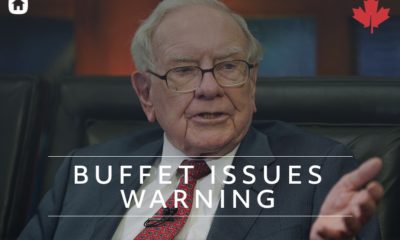(Special) – How much income do you think you need to be financially comfortable? Would $75,000 a year be enough? How about $100,000? What about $150,000 or even $200,000?
Well, a recent survey by Edward Jones has found that most Canadians now feel they need $250,000 in pre-tax income in order to feel financially comfortable. And when they were asked how much they feel they would need to have the lifestyle they truly desire, most added another $50,000, bringing their ideal income total before tax to $300,000.
That may be fine and well, the only trouble is that most people in this country don’t make anywhere near that amount of money each year. Their ideal income is in stark contrast with the country’s median after-tax income of $56,000 reported in 2015 by Statistics Canada.
There is a massive gap between Canadians’ financial expectations and reality.
“People clearly want more than their incomes can support,” Patrick French, principal of solution tools and consulting with Edward Jones, said in an interview. “They need to refine their goals and what they need versus what they want. A financial adviser can help you put pen to paper and do the math, outlining the financial steps you need to take to get you closer to where you want to be through a thoughtful conversation and a disciplined process. Partnering with a financial adviser can help because people’s expectations clearly are not sustainable on their incomes.”
The survey found that millennials aged 18 to 34 were the most modest in their expectations, saying they need close to $166,622 to feel financially comfortable and at least $299,854 to fund the lifestyle they desire.
Generation Xers (aged 35-54) say they need $227,290 to be financially comfortable while older Canadians aged 55-64 preparing for retirement need the highest pre-tax income of $398,347. When asked how much this group needed for the lifestyle they want, the figure dropped by over $70,000 to $325,066, signalling this age group currently may be saddled with unwanted financial responsibilities, the report said.
There could be several reasons why this gap between Canadians’ financial expectations and reality is so huge.
French says it’s encouraging to see that Canadians have a general idea of where they want to be financially, but he wonders whether they have actually sat down and thought about the lifestyle they want in detail.
Another contributing factor could be that many people are tempted to overspend their budgets by trying to keep up with their friends and neighbours.
An earlier Edward Jones poll revealed that Canadians often are influenced by the purchases of others to buy things beyond their budget, with 61 per cent saying they often look to their friends and wonder how they can afford their lifestyles and 93 per cent admitting they experience buyer’s remorse and regret their spending habits, felt mostly by millennials and then baby boomers.
“The research indicates that financial expectations and needs are continuously evolving through different stages of life,” French says. “It’s never too late or too early to start. Having a clear view of your goals and understanding how one financially influences the other is the first step toward achieving your lifestyle objectives.”
French believes the results of the polls shows there is still a lot of work to be done in this country in the area of financial literacy.
“There is still a need for a better understanding of goals and the need to put a strategy in place to help people work toward those goals,” he says. “If the baby boomers had used a financial adviser when they were in the 18-to-34 age group to begin the process they probably would have been able to close that gap and would not have so much room to make up.”
Talbot Boggs is a Toronto-based business communications professional who has worked with national news organizations, magazines and corporations in the finance, retail, manufacturing and other industrial sectors.
Copyright 2018 Talbot Boggs
Talbot Boggs , The Canadian Press

 Buying a Home5 years ago
Buying a Home5 years ago
 Credit6 years ago
Credit6 years ago
 5 Mortgage Secrets6 years ago
5 Mortgage Secrets6 years ago
 Business4 years ago
Business4 years ago
 Buying a Home6 years ago
Buying a Home6 years ago
 5 Mortgage Secrets6 years ago
5 Mortgage Secrets6 years ago
 Business4 years ago
Business4 years ago
 Buying a Home6 years ago
Buying a Home6 years ago






